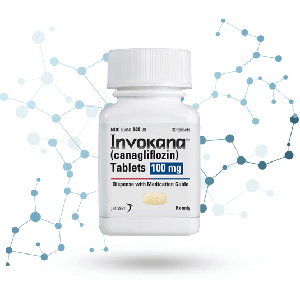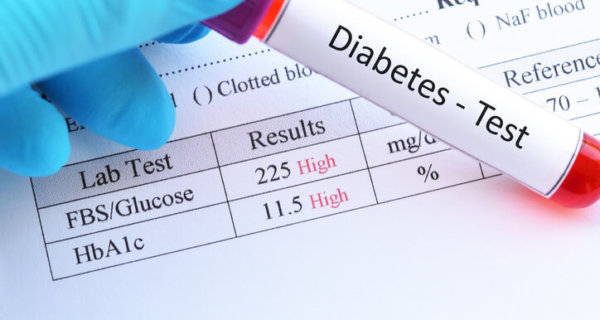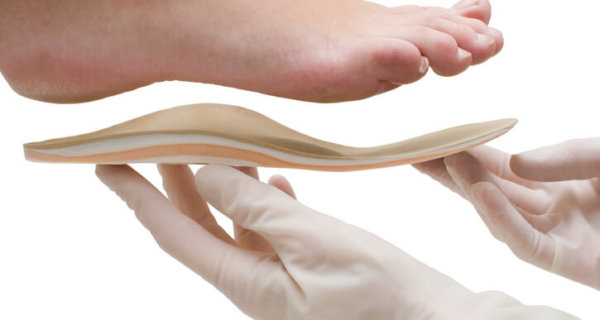Invokana Side Effects & Health Complications
 Invokana™ (generic name: canagliflozin) belongs to a class of drug called SGLT2 inhibitors. Doctors prescribe Invokana to regulate blood sugar levels in type 2 diabetes patients. However, studies show SGLT2 inhibitors seriously increase ketoacidosis risks — a condition that’s otherwise extremely rare for type 2 diabetics. Read on to learn more about other potentially severe Invokana side effects, including foot, toe and lower limb amputations.
Invokana™ (generic name: canagliflozin) belongs to a class of drug called SGLT2 inhibitors. Doctors prescribe Invokana to regulate blood sugar levels in type 2 diabetes patients. However, studies show SGLT2 inhibitors seriously increase ketoacidosis risks — a condition that’s otherwise extremely rare for type 2 diabetics. Read on to learn more about other potentially severe Invokana side effects, including foot, toe and lower limb amputations.
Plaintiffs now allege Janssen Pharmaceuticals (a Johnson & Johnson subsidiary) knowingly withheld information about harmful Invokana side effects. Injured patients are now suing over Invokana side effects like kidney damage, lost toes as well as feet, diabetic ketoacidosis and renal failure.
Invokana Side Effects: Kidney Failure
Some Invokana side effects (like serious urinary tract infections) can eventually cause kidney failure. In fact, the Food and Drug Administration issued a December 2015 warning about increased kidney failure risk from recurring UTIs. However, there’s no evidence that SGLT2 inhibitor drugs directly cause renal failure.
Kidney failure has three different types of causes:
- Prerenal causes. Prerenal causes include anything that limits blood supply to the patient’s kidneys, including dehydration or obstruction by a blood clot.
- Renal causes. Renal causes occur within the organ itself. Kidney infections happen when kidneys become clogged or unable to filter out waste. That waste then gets blocked within the kidneys, causing your organs to shut down.
- Postrenal causes. Postrenal causes relate specifically to urine, which exits the kidneys via tubes known as “ureters.” Ureters can get physically blocked by an obstruction (like a kidney stone). Sometimes, a urinary tract infection causes the ureter and its opening to swell shut. Regardless of the cause, your kidneys keep producing urine but can’t eliminate it. Eventually, urine-filled kidneys can become damaged or shut down completely.
Consumer watchdog group QuarterWatch reported about Invokana side effects and complications in May 2015. Kidney infection and failure risks were 5-6 times higher for Invokana patients than individuals with similar conditions taking different medication. Clinical studies on animals found that high Invokana doses can cause long-term kidney damage, bone abnormalities, and kidney as well as testicular cancers.
Invokana Side Effects: Diabetic Ketoacidosis
More severe Invokana side effects include diabetic ketoacidosis (DKA), blood clot-related injuries, and even frail bones. To understand how one drug can have so many serious complications, you first have to know how it works. Invokana blocks glucose reabsorption within the kidneys. Then, glucose travels to the bladder and is eliminated through urine. But if your bladder gets overloaded with glucose, it causes hyperglycemia.
Glucose provides your body with energy, but if your blood doesn’t contain enough glucose to draw energy from, it seeks a different source called ketones. Ketones are very acidic and eventually break down into acetone — the same substance that’s found in paint thinner. When ketones cause too much acid to build up within your blood, you develop ketoacidosis — which can be fatal.
Once you start going into hyperglycemia, your bladder pulls nutrients and water directly from your blood to handle the glucose overload. Dehydration soon follows, and your blood lacks critical nutrients in addition to becoming highly acidic. This is due to having not enough water available to help flush excessive ketones out of your blood. As a result, blood clots form. The most common ketoacidosis symptoms are nausea, vomiting, stomach pain, fatigue and trouble breathing.
Invokana Side Effects: Blood Clot-Related Injuries
Among Invokana side effects, blood clots have potential to cause far-reaching damage in several different body parts and organs. Blood clots that travel can trigger:
- Heart attacks
- Strokes after reaching your brain
- Pulmonary embolisms inside your lungs
- Deep vein thrombosis (DVT) throughout your legs
Invokana Side Effects: Lower Limb Amputations
In 2017, the FDA issued an updated warning about Invokana side effects after the CANVAS-R study found it doubled amputation risks. According to the clinical study data, patients given Invokana were twice as likely to need surgery to remove:
- Toes
- Feet
- Lower legs cut off at or below the knee
- Foot, ankle and toe
If either you or a loved one lost a toe or other body part while taking Invokana, you may be eligible for financial compensation from the manufacturer. To check your eligibility for a cash settlement, click the button below right now to start your free claim evaluation. Once you’ve submitted your information, an attorney working on cases like yours will call to discuss how to get the justice and compensation you deserve.
Check eligibility for compensation.
If either you or a loved one developed life-threatening Invokana side effects, you may qualify for compensation from the manufacturer. Request your free case evaluation now to see if you may qualify.
Lori Polemenakos is Director of Consumer Content and SEO strategist for LeadingResponse, a legal marketing company. An award-winning journalist, writer and editor based in Dallas, Texas, she's produced articles for major brands such as Match.com, Yahoo!, MSN, AOL, Xfinity, Mail.com, and edited several published books. Since 2016, she's published hundreds of articles about Social Security disability, workers' compensation, veterans' benefits, personal injury, mass tort, auto accident claims, bankruptcy, employment law and other related legal issues.




